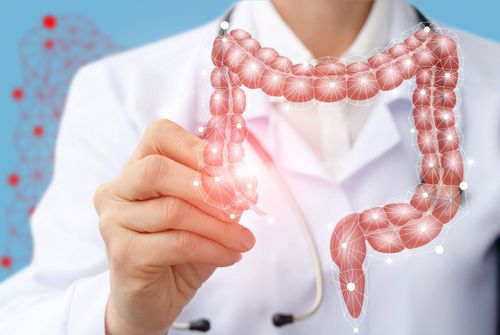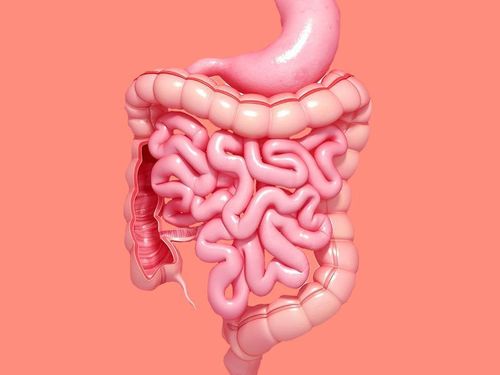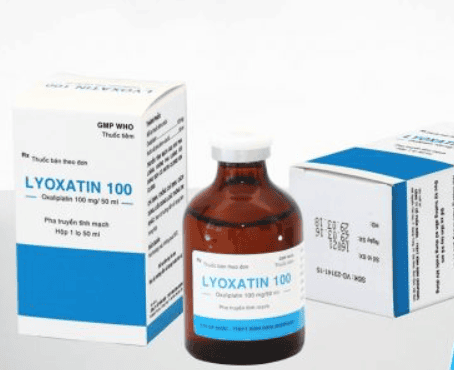This is an automatically translated article.
Treatment for colon cancer is mainly based on the stage (extent) but other factors may also play an important role. Colon cancer is divided into 5 stages, from stage 0 to stage 4. In this article we learn about the treatment of stage 2 colon cancer.1. How is stage 2 colon cancer diagnosed?
Colorectal cancer, sometimes called colon cancer, begins when the cells lining the colon or rectum grow out of control. It is the third leading cause of cancer death in American men and women. In the United States, about 72% of colorectal cancer cases begin in the colon and 28% in the rectum.The colon is also known as the large intestine, part of the digestive system. The colon absorbs water and nutrients from food as it moves through the stomach and small intestine. Solid waste (faeces) is stored in the large intestine before moving to the rectum, until it leaves the body through the anus.
Most colorectal cancers are "silent" tumors. They grow slowly and you may not notice any symptoms until they are large. However, there are steps you can take to prevent and treat colon cancer if detected early. It is important to have regular screenings for cancer or precancerous areas, especially if you are at high risk for the disease.
If signs and symptoms suggest you may have colon cancer, your doctor will recommend one or more tests to check, including:
Using a scope to examine the inside of your colon you (colonoscopy). A colonoscopy will use a long, flexible, and thin tube attached to a video camera and monitor to view your entire colon. If any suspicious areas are found, the doctor may insert an instrument through the tube to take a tissue sample (biopsy) for analysis and removal of the polyp. Blood tests: There is no blood test that can tell if you have colon cancer. But your doctor may do blood tests for clues about your overall health, such as liver and kidney function tests. Your doctor may also recommend a blood test to look for a chemical produced by colon cancer (carcinoembryonic antigen or CEA). Monitoring over time, the level of CEA in your blood can help your doctor assess the condition and prognosis of colon cancer treatment. If you have been diagnosed with colon cancer, your doctor may recommend tests to determine the stage of the cancer. This helps determine the most appropriate colon cancer treatment for you.
Staging tests may include imaging studies such as CT scans of the abdomen, pelvis, and chest. In many cases, the stage of your colon cancer may not be determined until after surgery.
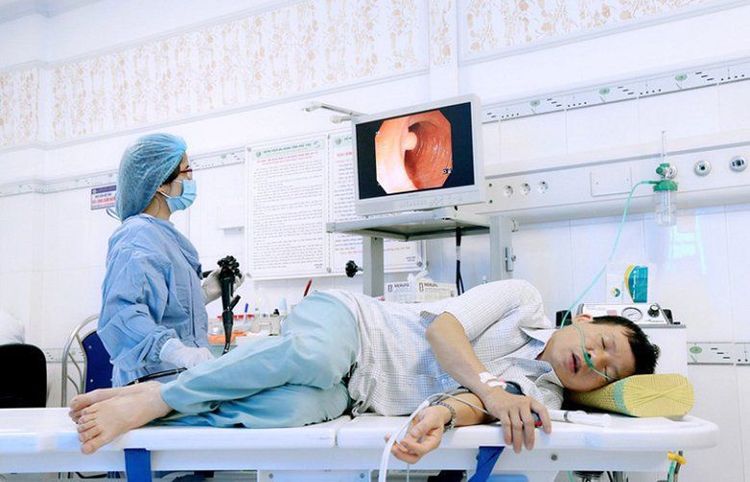
Ung thư đại tràng giai đoạn 2 có thể được chẩn đoán bằng phương pháp nội soi
2. How is stage 2 colon cancer treated?
Stage 2 colon cancer is when cancer cells have grown through the wall of the colon and possibly into nearby tissue, but they have not spread to the lymph nodes.Surgery to remove the part of the colon that contains the cancer (partial resection) along with nearby lymph nodes may be the only and necessary treatment for stage 2 colon cancer. However, your doctor may recommend adjuvant chemotherapy (chemotherapy after surgery) if your cancer has a higher risk of coming back because of several factors, such as:
The cancer looks very unusual ( high grade) when observed closely in the laboratory. Cancer has grown to nearby blood or lymph vessels. The surgeons did not remove at least 12 nearby lymph nodes. Cancer cells are found in or near the edge of the removed tissue, which means some cancer cells may have been left behind. Cancer has blocked the colon. The cancer causes a hole in the wall of the colon. Your doctor may also test your tumor for specific gene changes, known as MSI or MMR, to decide if adjuvant chemotherapy is helpful.
Not all doctors agree on when to use chemotherapy for stage 2 colon cancer. It is important that you discuss the risks and benefits of chemotherapy with your doctor, including how it can reduce the risk of recurrence and possible side effects.
2.1. Treatment of stage 2 colon cancer with surgery If cancer has grown into or through your colon, your surgeon may recommend:
Partial colon resection: In this procedure, your doctor may recommend: The surgeon removes the part of the colon that contains the cancer along with a portion of normal tissue on either side of the cancer. Surgeons can usually reattach healthy parts of the colon or rectum. This procedure can usually be done with a minimally invasive method (laparoscopic surgery). Surgery to make way for waste out of the body: When healthy parts of the colon or rectum cannot be reconnected. This involves making a hole in your abdominal wall from the rest of your intestines to empty the stool into a bag that fits snugly into the opening. Sometimes, this surgery is only temporary, allowing your colon or rectum time to heal after surgery. However, in some cases, colectomy and colostomy are permanent. Lymph node removal: Nearby lymph nodes are also often removed during colon cancer surgery and cancer testing. Before surgery, talk to your doctor about side effects and how to prevent them. Side effects of surgery include pain in the surgical area. This method can also cause constipation or diarrhea, which usually goes away after a while.
People who have a colectomy may experience irritation around the stoma. If you need to have a colectomy, your doctor, nurse, or gastroenterologist, who specializes in the management of large bowel surgery, can guide cleaning the area and preventing infection.
Many people need to retrain their bowels after surgery. This can take some time and requires support. You should talk to your doctor if your bowel function is not well controlled.
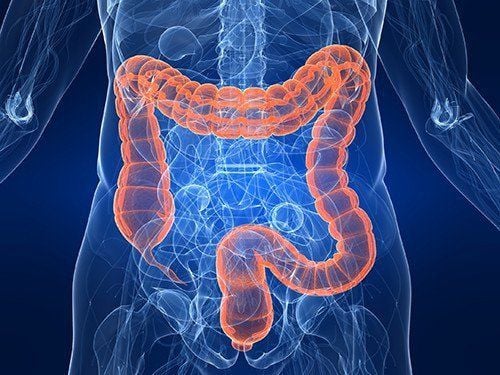
Nếu ung thư đại tràng giai đoạn 2 đã phát triển thành hoặc xuyên qua đại tràng bác sĩ sẽ đề nghị phẫu thuật
Chemotherapy can also sometimes be used before surgery to shrink a large cancer to make it easier to remove with surgery.
Chemotherapy may also be used to relieve symptoms of colon cancer that cannot be removed with surgery or has spread to other areas of the body.
If chemotherapy is used for stage 2 colon cancer, the main options include 5-FU and leucovorin, oxaliplatin or capecitabine, but other combinations may also be used.
Chemotherapy can cause vomiting, nausea, diarrhea, mouth sores, neuropathy, tingling in the feet or hands. However, medications are available to prevent these side effects.
Because of the way the medicine is used, these side effects are less severe than they used to be for most people. In addition, the patient may be unusually tired and at increased risk of infection. Excessive hair loss is an uncommon side effect with many drugs used to treat colorectal cancer, although it is more common with chemotherapy regimens that include irinotecan.
If the side effects are particularly severe, the dose may be reduced or a course of treatment may be postponed. If you are receiving chemotherapy, you should regularly talk to your doctor about any side effects and how to manage them. Usually, the side effects of chemotherapy go away after treatment is finished.

Hóa trị trong điều trị ung thư đại tràng giai đoạn 2 có thể gây rụng tóc nhiều
3. Colon Cancer Screening
Doctors recommend that healthy people with no signs or symptoms of colon cancer still have some screening tests to look for signs of colon cancer or noncancerous colon polyps. If colon cancer is detected at the earliest stage, there is a high chance of cure. Colon cancer screening has been shown to reduce the risk of dying from the disease.Doctors generally recommend that people at average risk for colon cancer start getting screened at age 50. But people at higher risk, such as having a family history. If you have colon cancer, you should consider screening earlier.
There are several colon cancer screening options, and each option has its own benefits and limitations. Talking with your doctor about screening options will help you decide which test is right for you. If colonoscopy is used for screening, polyps can be removed during the colonoscopy before they turn cancerous.
Currently, Vinmec International General Hospital has a Colon Cancer Screening Package. When screening for colon cancer at Vinmec, you will receive:
Gastrointestinal CK examination (with appointment) Diagnostic colonoscopy with flexible bronchoscope (with NBI machine, with anesthesia) Complete colonoscopy with NBI endoscope with anesthesia (Drugs) Complete colonoscopy with NBI endoscope, with anesthesia (VTTH) Routine histopathological examination fixed, transferred, cast, cut, stained... Biopsy specimens (lower gastrointestinal tract through colonoscopy, rectum).
Please dial HOTLINE for more information or register for an appointment HERE. Download MyVinmec app to make appointments faster and to manage your bookings easily.
References: cancer.org, mayoclinic.org, cancer.net




